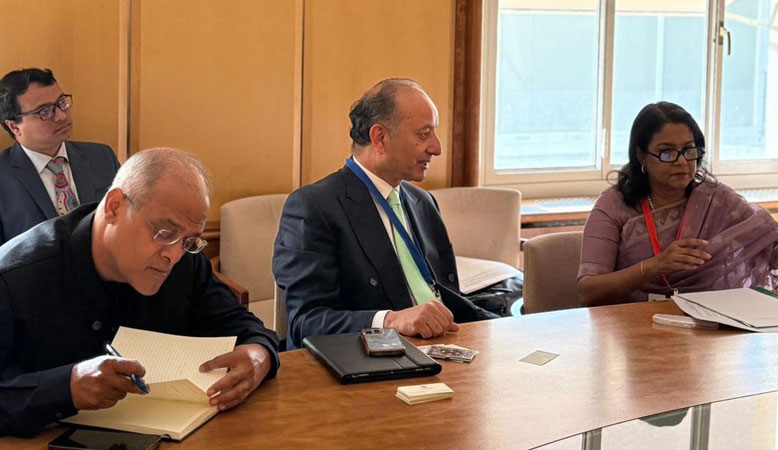Pakistan Seeks Equal Green Funding in Global Plastic Talks

Pakistan Takes the Lead in Advocating for Equitable Global Plastic Treaty
Pakistan has emerged as a key player in advocating for a fair and effective Global Plastics Treaty, emphasizing the need for equitable access to green financing and technology for developing nations. The country's efforts are aimed at ensuring that the voices of less developed countries are heard and prioritized in global environmental negotiations.
During the Fifth Session of the Intergovernmental Negotiating Committee on Plastic Pollution (INC-5.2) in Geneva, Federal Minister for Climate Change and Environmental Coordination Dr. Musadik Malik led an interactive briefing with delegations from Bangladesh, Egypt, Tajikistan, Malaysia, and Sudan. This meeting took place on the sidelines of the ongoing discussions, which aim to finalize a landmark global agreement to tackle plastic pollution effectively.
Dr. Malik highlighted the growing concern that the world's poorest countries are being left behind in the fight against environmental degradation. He pointed out that those responsible for the highest levels of plastic consumption often benefit the most from green financing, while developing nations bear the brunt of the environmental and socio-economic impacts of plastic waste.
A Call for Inclusive and Fair Solutions
The minister stressed that the treaty must include commitments to technology transfer, capacity building, and financing mechanisms that prioritize the needs of countries most affected by climate change and plastic pollution. "Without fair access to resources and technology, developing nations cannot meet the environmental goals set by the global community," he emphasized.
This call for action comes amid an ongoing UN-led process to develop a legally binding instrument on plastic pollution by the end of 2025. Environmental experts believe that such an agreement could mark a turning point in addressing the staggering amount of plastic waste produced globally each year—approximately 400 million tonnes.
Strengthening the Developing World's Position
By pushing for a united regional stance, Pakistan aims to strengthen the negotiating position of developing countries and ensure that the treaty addresses both environmental and economic fairness. The discussions in Geneva reflect a broader effort to create a more inclusive and equitable framework for tackling one of the most pressing environmental challenges of our time.
Key areas of focus for the treaty include:
- Technology Transfer: Ensuring that developing nations have access to the latest technologies for managing and reducing plastic waste.
- Capacity Building: Supporting the development of local expertise and infrastructure to implement sustainable practices.
- Financing Mechanisms: Creating funding structures that provide targeted support to countries most affected by plastic pollution.
The Path Forward
As the negotiations continue, the role of countries like Pakistan becomes increasingly vital in shaping a global response that is both effective and just. The success of the treaty will depend not only on the commitment of major polluters but also on the ability of the international community to address the disparities that exist between developed and developing nations.
With the deadline for a final agreement approaching, the urgency to act grows stronger. The outcomes of these negotiations will have far-reaching implications for the environment, public health, and economic stability worldwide.
In this context, Pakistan's leadership in advocating for a fair and inclusive treaty serves as a reminder that the fight against plastic pollution is not just about protecting the planet—it is about ensuring a more equitable future for all.

Comments
Post a Comment